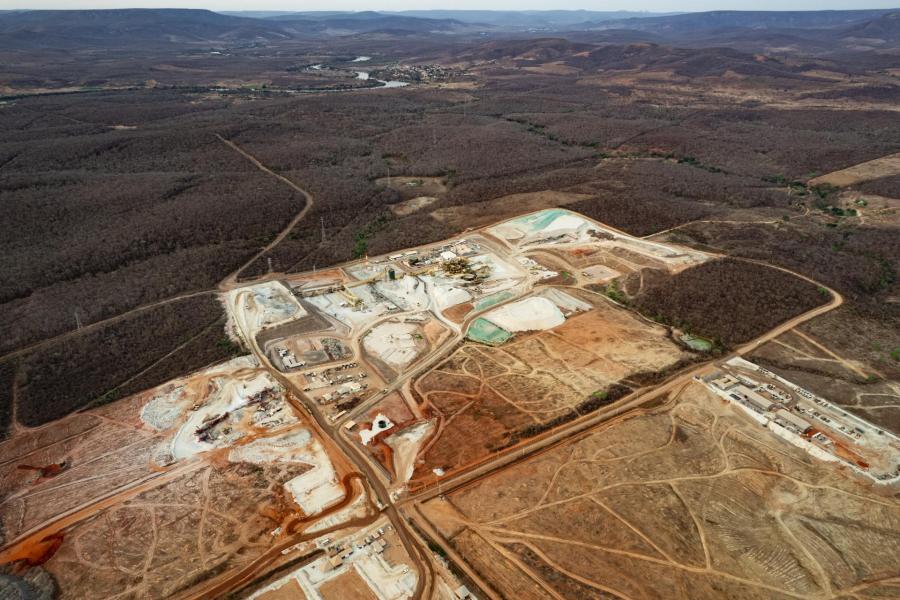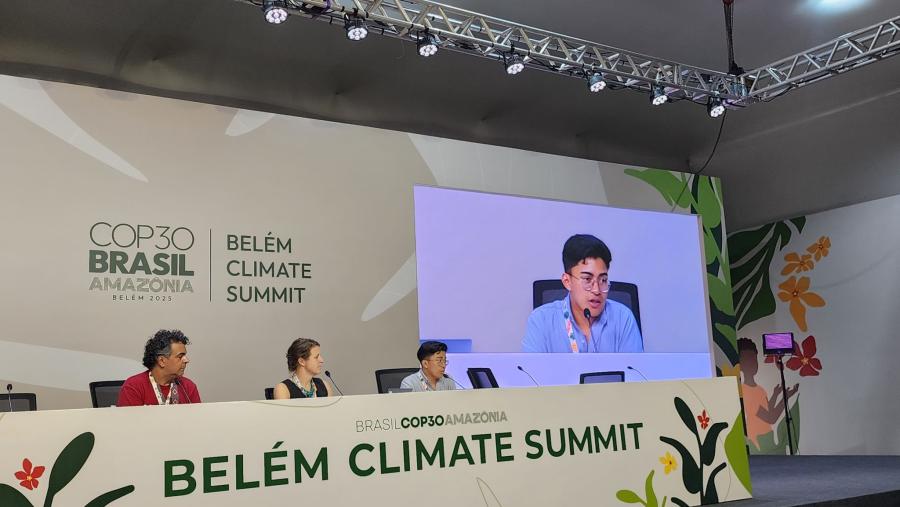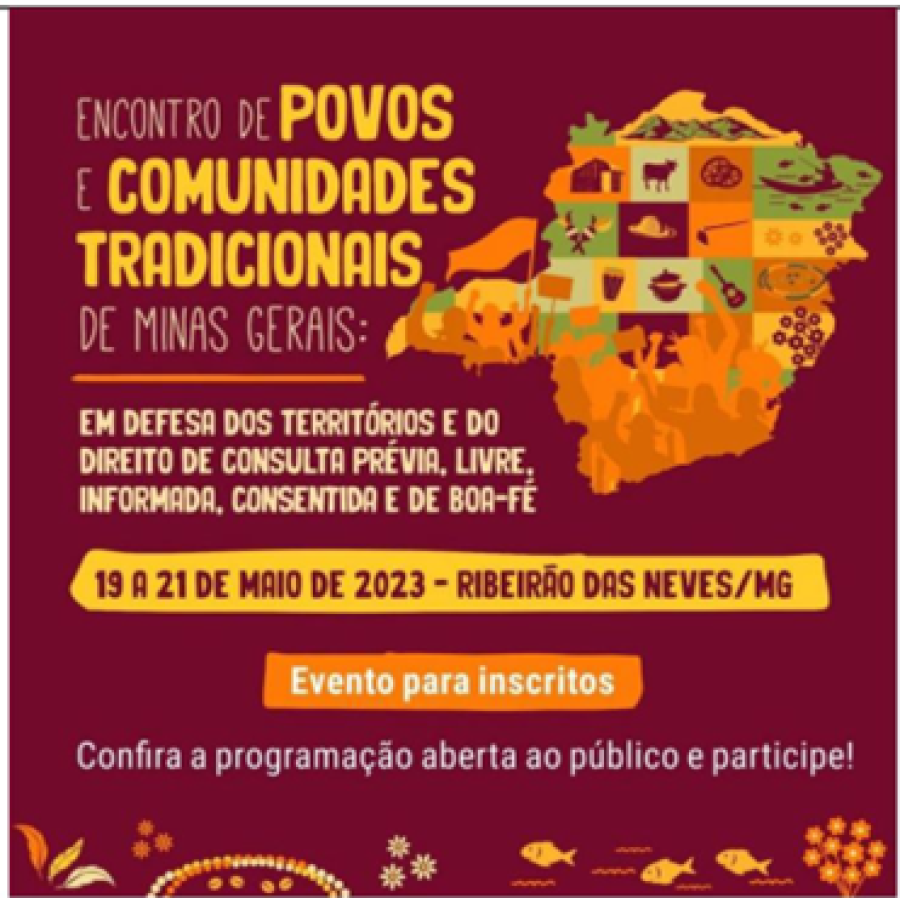
By Edson Krenak Naknanuk (Krenak, CS Staff)
For the first time in history, Indigenous Peoples from Brazil are going directly to the International Criminal Court (ICC) at The Hague, with their Indigenous lawyers to fight for their rights.
On Monday, August 9, 2021, the Articulation of Indigenous Peoples of Brazil (APIB) filed a statement at the International Criminal Court to denounce the Bolsonaro government for genocide. On the date that marks the International Day of the World's Indigenous Peoples, APIB is demanding that the prosecutor of the ICC examine the crimes committed against Indigenous Peoples by President Jair Bolsonaro since the beginning of his term in January 2019, with special attention to the period of the COVID-19 pandemic.
International news agency, Aljazeera, also reported, “Chief Raoni Metuktire filed a separate case to the ICC asking the court to investigate Bolsonaro for crimes against humanity, saying the ‘destruction of the Amazonian forest has accelerated without measure’ under his government.” This was, however, a case filed by an individual.
What is different about the August 9th lawsuit is that the largest Indigenous organization in Brazil, representing the vast majority of the communities and other regional Indigenous organizations, the Articulation of Indigenous Peoples of Brazil (APIB), filed its own case at the ICC to denounce the Bolsonaro government for genocide. On the day that marks the International Day of the World's Indigenous Peoples, APIB demanded that the prosecutor of the ICC examine the crimes committed against Indigenous Peoples by President Jair Bolsonaro since the beginning of his term in January 2019, with special attention to the period of the COVID-19 pandemic.
Based on the Rome Statute, APIB is seeking an investigation for crimes against humanity such as extermination, persecution, and other inhuman acts, and genocide for causing severe physical and mental damage and deliberately inflicting conditions aimed at the destruction of Indigenous Peoples.
The main argument presented by the APIB is that Bolsonaro`s policies towards Indigenous Peoples, widely informed and discussed in these previous articles, constitute crimes of genocide and ecocide. This step is important, especially, because of the inability of the current justice system in Brazil to investigate, prosecute, and judge the current government's conduct.
Since the first day of his government, Bolsonaro has been dismantling public structures for social and environmental protection, such as IBAMA, and for Indigenous Peoples, such as FUNAI, instigating invasions onto Indigenous lands. Deforestation and arson in Brazilian forests, increased mining and illegal logging in the territories have affected entire biomes and destroyed thousands of acres of land, flora, and fauna.
Indigenous Peoples in Brazil through their organizations, associations, and allies are steadily fighting for the right to exist.
The Fight for Indigenous Rights in August 2021
“The month of August will be marked by mobilizations of Indigenous Peoples in the fight for rights,” says APIB`s leader, Sonia Guajajara (Guajajara)
For five centuries, Indigenous Peoples in Brazil have been fighting colonialism and oppressive policies. The predatory colonialism that started with European settlers centuries ago continues through extractive capitalism, where the State is privatized by corporations threatening Indigenous rights and lives.
According to Sonia Guajajara, APIB`s Executive Director, the month of August (2021) will be marked by the mobilizations of Indigenous Peoples in the fight for rights. By the end of this month, the Supreme Court is expected to decide a key case involving Xokleng Peoples’ territory, which can set a precedent for stripping territorial rights that were not officially recognized when the Brazilian Constitution was approved in 1988, and the PL 490, a bill threatening Indigenous land rights.
The Xokleng Peoples are one of the most impacted communities in the southern region of the country. They have survived and resisted colonization, the advance of large farms, and urbanization on their territories-- a process that was so extremely violent that they had to hide in other lands and flee many times. This persecution and forced displacement explain why they were not in their traditional territory in 1988, at the end of the military government in Brazil.
Cultural Survival is supporting several grassroots communities that are leaving their villages to go to the capital city of Brasilia, to join the Fight for Life Camp, which will take place on August 22- 28, 2021. The Fight for Life Camp is a protest against the approval of the Bill PL 490/2007, which deals with the Marco Temporal (a Temporal Framework) to definitively interrupt the demarcation of Indigenous lands in Brazil in order to it easier for large scale agribusiness, mining operations, and dams to takes place on Indigenous lands.
The planned mobilizations, protests, and manifestations will take place in cities, but the main manifestation will be in Brasilia, where more than 10,000 Indigenous people are expected to show up. Mobilizing crowds in the midst of a pandemic is risky and dangerous, but the federal government's anti-Indigenous agenda represents a more lethal threat than the COVID-19 virus. One Indigenous leader shared that he would prefer to die in Brasilia fighting for their territories than dying in his village observing Bolsonaro destroying nature.
The Indigenous Women's Movement in Brazil
Since 2019, in the context of debates and demonstrations in Brasília and other cities and villages, women representatives of more than 132 Indigenous Peoples created a movement called the March of Indigenous Women (A Marcha das Mulheres). They wrote a manifesto stating: “We are totally against the narratives, purposes, and actions of the current government, which has been making explicit its intention to exterminate Indigenous Peoples, aiming at the invasion and genocidal exploitation of our territories by the capital.” Also, they state: “We are responsible for the fertility and care of our sacred soil. We will always be warriors in defense of the existence of our Peoples and Mother Earth."
This year, A Marcha das Mulheres wants to make history by congregating the largest number of Indigenous women in Brasilia. Cultural Survival is supporting a group of 200 women from APOINME (Northeast Indigenous Association) to participate in the September 7th march.
At the core of these struggles is the legal battle against the Brazilian government, the fight for self-determination, land rights, and survival. The street demonstrations in August and September are acts of courage on the part of Indigenous Peoples. This is still not enough, international pressure and alarm are key. We, Indigenous Peoples in Brazil, ask for an international mobilization to protect the guardians of the forests, guarantee their rights to live, and exist in the ecological and cultural diversity of their choice.
Photo by Tiago Miotto - Cimi.



